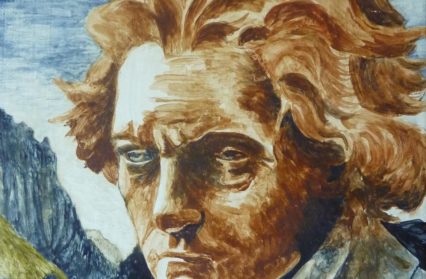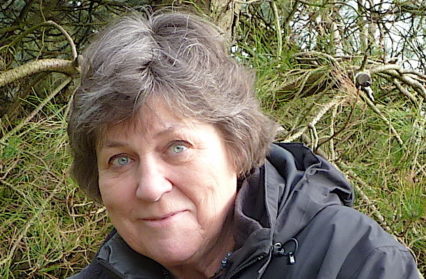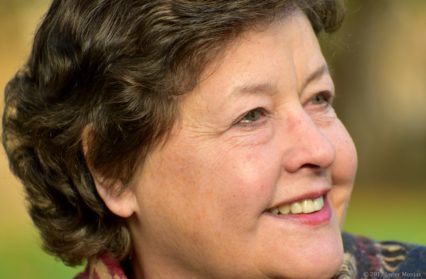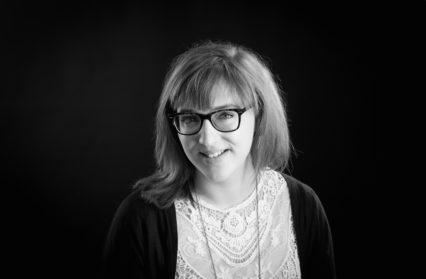Beginning in September 2018 and continuing for the next three seasons, Beethoven in Wales is an exciting chamber music project involving music clubs across the length and breadth of Wales. Violinist Mary Hofman and pianist Richard Ormrod will be performing a series of three programmes to include all ten sonatas for violin and piano by Beethoven and each containing a new commissioned work by one of three outstanding Welsh composers. The composers will also be giving talks before the concerts and workshops in schools. Mary and Richard have worked together as a duo for five years and in that time have performed frequently in Malaysia, Singapore and Cambodia as well as at numerous venues across Britain. This is a special project for them: “It is a real joy to have the chance to take these wonderful sonatas to so many beautiful venues, and to discover the enthusiasm for classical music in all corners of the country,” says Richard. “It is a particular luxury to perform new commissions so many times: all too often they receive their premier and are then not played again for many years. It’s great to be able to explore the new works in depth,” adds Mary. They are delighted to be performing this project rooted firmly in their home country and celebrating Wales’s vibrant musical heritage.
The first programme features the three joyous early sonatas Op.12 and the iconic Spring Sonata Op.24. It is this latter masterpiece that was loosely taken as a starting point by Rhian Samuel for her Sonata. Rhian is one of Wales’ most eminent composers. She has had more than 120 compositions published and her works have been performed across the world, including at the BBC Proms. She now divides her time between Aberdyfi and London; the landscape around her home overlooking the Dyfi estuary provides inspiration for her music along with her rich Welsh literary and musical heritage. “In this sonata,” Rhian explains, “my own greatest preoccupation is revealed: the dramatic potential of themes to merge with, overcome or reject one another.”
The three dramatic Op.30 sonatas, which represent a new departure in Beethoven’s middle period of composition have been coupled with a new commission by Sarah Lianne Lewis for the second programme. Sarah is a rising star on the Welsh classical music scene. Her music has been performed by BBC National Orchestra of Wales as well as by chamber groups in Europe, Canada and Australia. Until the Thread Breaks takes its title from a phrase Beethoven wrote in his Heiligenstadt Testament, a letter struggling with his depression linked to his hearing loss, and written around the same time as he composed his Violin Sonata Op. 30.3. “In this work I explore the emotional attachment we have to something that we often – particularly as musicians – take for granted” muses Sarah. The outreach part of this project is also very important to her: “I myself began composing through the Young Composer of Dyfed scheme and am very aware of how vital it is to encourage young minds to explore and create new classical music.”
The remaining three sonatas join with a new work by Hilary Tann to form the third and final programme. Hilary Tann’s work, First Light is written in response to the first movement of Beethoven’s Sonata Op.96. From her childhood in the coal-mining valleys of South Wales, Hilary Tann developed the love of nature which has inspired all her music and this “meditation on Beethoven Op 96.1” is no exception. Hilary’s music is widely praised for its lyricism and formal balance and has delighted audiences across the world. More than sixty of her works are available on recordings. Hilary also remembers with delight the first experiences of music making given to her by the area in which she grew up and is particularly pleased to be involved in a project which is celebrating the work of local music clubs in bringing live music to rural areas.
The idea for this project originated with Rhyl Music Club and its dynamic concert organiser, Stephen Leeder. He takes his role very seriously: “I look back in our autograph book and see signatures from past artists and notice that we have had the most amazing musicians at our Club from the Beaux Arts Trio to Ferrier, Argerich, Tortelier, Ogdon, Hough – the list just goes on and on. So somehow, I have to bring musicians to Rhyl who will become icons of the future. Music Clubs have a small budget but they manage their money incredibly well and, of course, the Committee are completely unpaid. Even so we have to take great care to get the best possible musicians that we can afford because maintaining our previous high standard is vital. Music clubs are committed to live music and see this as a major contribution to the cultural life of our country.”
The participation of nine other music clubs (Aberystwyth, Adbaston, Carmarthen, Dolgellau, Machynlleth, Newport, Rhymney Valley, Welshpool and Wye Valley) forms a model for the project which allows these clubs to “buy in” to a scale of project which would ordinarily lie outside their reach. Commissioning new works, though important in nurturing the musical life of a nation, is expensive. All the music clubs involved have enjoyed the benefits of the many hours David Birch (Chairman at Rhyl) has spent raising funds to support the project. The new commissions were funded with support from PRS, Colwinston Foundation, Ty Cerdd and a private donor. It was of decisive importance in obtaining these funds that the commissions would reach a larger audience than any one music club could provide.
The project has been received with great enthusiasm at all the clubs it has visited. Audience members in Dolgellau called it a performance “full of passion and grace”, while Mike Haines, chairman of Wye Valley Music Club, praises the “exciting and joyous quality of the (perfectly balanced) playing”. Richard Hayes from Welshpool is hopeful for the long-term consequences from the project: the “Beethoven in Wales initiative was very much welcomed, and very warmly received. It did help to get us local publicity, and it did draw some new members into the Club … it is surprisingly hard to make the presence of the Club, and the quality of the music it offers, known in the wider community. Initiatives such as theBeethoven in Walesproject certainly help in this…. to hear a piece played live and to watch the interaction and communication between players always opens the mind and reveals new aspects of the work, and is hugely rewarding; if we can get people to once experience that magic, they are very likely to come back for more.”
The final premier will take place at Rhyl Music Club on 20thMarch. Further performances of the project will continue at the other nine music clubs until 2021.















